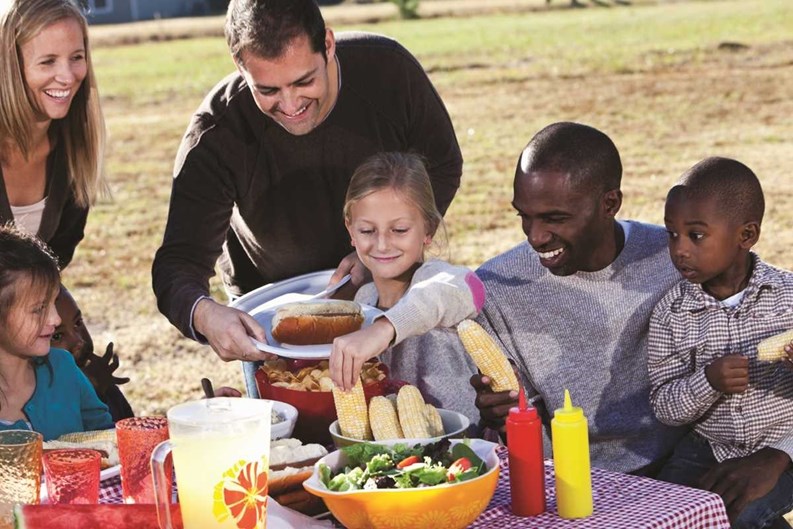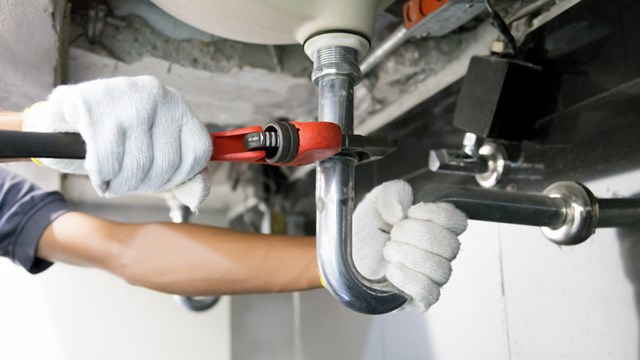People buy into condo and HOA communities for many different reasons. Some are attracted by the amenities that common spaces can offer, and many in Florida seek a vacation-style environment that doubles as a smart real estate investment. Ironically, most buyers see the prospect of living in an established community with nearby neighbors as a means to and end. The fact that others buy into the same development makes the pools, gyms, and golf courses possible. There may be a polite “hello” here and there, but often fellow unit owners coexist more or less on the basis of strangers. I do my thing, you do yours, and let's both respect that.
But, property managers and boards, in particular, are starting to understand the disadvantages and missed opportunities that come from the residential isolation we see in associations. Americans have placed so much value on privacy and individual comfort, a new set of complications have arisen because of it. Where else but in an association would a greater sense of community and belonging provide some real benefits? Your neighbor, just like you, has made a major financial investment that, in part, depends on the overall health of the association as a whole. Everyone has a common cause, so why not get to know each other a little bit?
Closed Door Meetings
No two associations are exactly the same, and there are plenty of condo and HOA communities that remain tight-knit, whether it's based on gregarious neighbors or long-fostered relationships. For instance, one community in Bal Harbour, says Louis Pincus, vice president of client relations at FirstService Residential Florida’s South Florida hi-rise division, acts almost like an extended family. “Those units very seldom come up for sale. Some of the people have lived there since the building opened. They all know each other, it's like a big family, all the residents and their families know each other. It's very socially active.” Part of that may be this particular association is quite affluent and enjoys a degree of exclusivity.
When you zoom out, the Bal Harbour community is more the exception than the rule. “Most people do keep to themselves nowadays. People don't get to meet their neighbors anymore. People just kind of come in and close the door, and live life I guess. It's pretty much across the board, everyone's very busy, and they tend to not communicate,” says Avelino Vide, LCAM, CMCA, president of Avid Property Management in Tampa.
Perhaps some communities genuinely prefer to have their unit owners left alone, and let bygones be bygones. There is no shame in that, but the fact remains that there are distinct benefits to a friendlier and more social association. “The more people that you can get involved into a community, the better it's going to run. If you can get your architectural committees, landscaping committees, it really does help out,” says Vide.
Property managers have started to focus more on the social vibrancy of their communities, because it tends to make everything they do, and the board does, easier. “I find that the communities that do get involved with their board and do understand how the association operates, tend to run smoother. There's clearer understanding of what the board is. Unfortunately, a lot of people come in purchasing into a community, not really understanding the responsibilities they have, as opposed to what the association is responsible for,” says Vide.
Not only does it help to get unit owners busy and engaged with their associations, it can also bring down the odds of harsh conflicts or misunderstandings. You're more likely to empathize with the baby crying upstairs, if you've held that baby in your own arms.
There's no one formula for how a building becomes socially engaged. Property managers can certainly do their part to nudge residents in the right direction, but a lot of it has to do with the makeup of the building, even the personalities of its residents. According to Pincus, demographics play a large role. High-end buildings in Miami that have a lot of renters who seek a busy life out in the city. “As you have more retirees, they definitely enjoy the association events. But, with those events, often the social aspect can be a reflection of the board. The board of directors, they're like the commissioners. So, they're driving the vision, they're driving the lifestyle. So if you have board that understands and has a vision of bringing the community together, they're going to be more open to having events.”
Boards may be tasked with the sometimes contentious decision with how much to budget for social gatherings. But, one possibility is to invite local businesses and vendors of the building to throw an event that can double as promotional for their business. “In some buildings we partner with local vendors, local restaurants. They may offer a night of hors d'oeuvres, the association may contribute wine and cheese. Maybe the elevator company or landscaper will help out with events,” says Pincus.
Then there is the quality of life aspect. If the people who live in a building make up the character of that building, buying into the building is a sign that you want to be part of the general vibe of the place. Who would purchase a unit in a building filled with people they didn’t care for? Knowing the neighbors is, in fact, one of the benefits of owning an apartment, be it a condo or a co-op. There are many reasons to buy, but one is surely to live a less transient lifestyle.
A building that gets along also affects real estate values. “Having an active lifestyle, there's a connection with property values. We partner a lot with realtors to get their perspective on what's the market saying about a certain building, so when they have a buyer that's narrowed it down to a few other buildings. People like to know that the building is active, if you're a retiree going into a building, you want to know what's going on, and you know that the participation is welcome by the board, that's a good thing. There's a connection with increasing property values,” says Pincus.
One of the wonders of our age is that communities need not be confined to the physical. Residents can interact on the Internet without meeting each other frequently in real-time. Buildings can have private Facebook groups, for example, that only restrict membership to residents. Enid Hamelin of Bernstein Real Estate, which manages properties in Florida and New York, recommends establishing a good communication system. Social media can work well for this, or you can use BuildingLink or MyPage or one of the other residential property management programs.
“It allows you to communicate with the managing agent, allows you to get information and pay bills, allows you to use the bulletin board,” she says. Anyone who has spent a little time on Facebook (note: this writer is guilty) knows that it’s easy to develop “friendships” with people who live far away, and whom you barely know in real life. Those relationships often do translate into real life, however. Thus a cordial friendship on Facebook most likely translates to a real amity in the lobby or at the holiday party.
Facebook and other social media have also shown to be venues where neighbors can police each other on how the common spaces are being treated. “We have communities that use it for people who speed down the street. If you race through the neighborhood, they will post it on Facebook, and that person feels like they've been belittled. They're concerned about speeding through the street because it'll end up on Facebook,” says Vide.
Facebook, however, is not a replacement for monthly meetings or any official business. For liability reasons, board members should not really engage on Facebook. “The board of directors tend to stay off of the Facebook portion, but they do look at it. It's their engine to see what's going on in the community, what the homeowners, concerns they may have. Board members tend not to post on the page. They have a committee that handles the Facebook page, and that's all done through them,” says Vide.
More than anything, though, developing a community starts with a leader. Communities must be organized. “In my experience, there are particular people who take on the responsibility,” says Hamelin. “You need a leader who wants to do that.” And the person doing the organizing has to be someone other people want to engage with. In the film Ghostbusters, Rick Moranis’s dull accountant throws a bash at his lovely apartment, and while it is well attended, no one seems to want to be there; if Bill Murray’s rogue scientist had the same party, one suspects most of the building would have happily attended. Bottom line: if Bill Murray lives in your building, make him sit on the social committee.
The need for developing these communities is growing at the moment. After a sluggish half-decade, the real estate market is starting to heat up, meaning more co-ops and condos are changing hands—and more people are moving into different buildings.
Tom Lisi is the associate editor of the South Florida Cooperator.







Leave a Comment